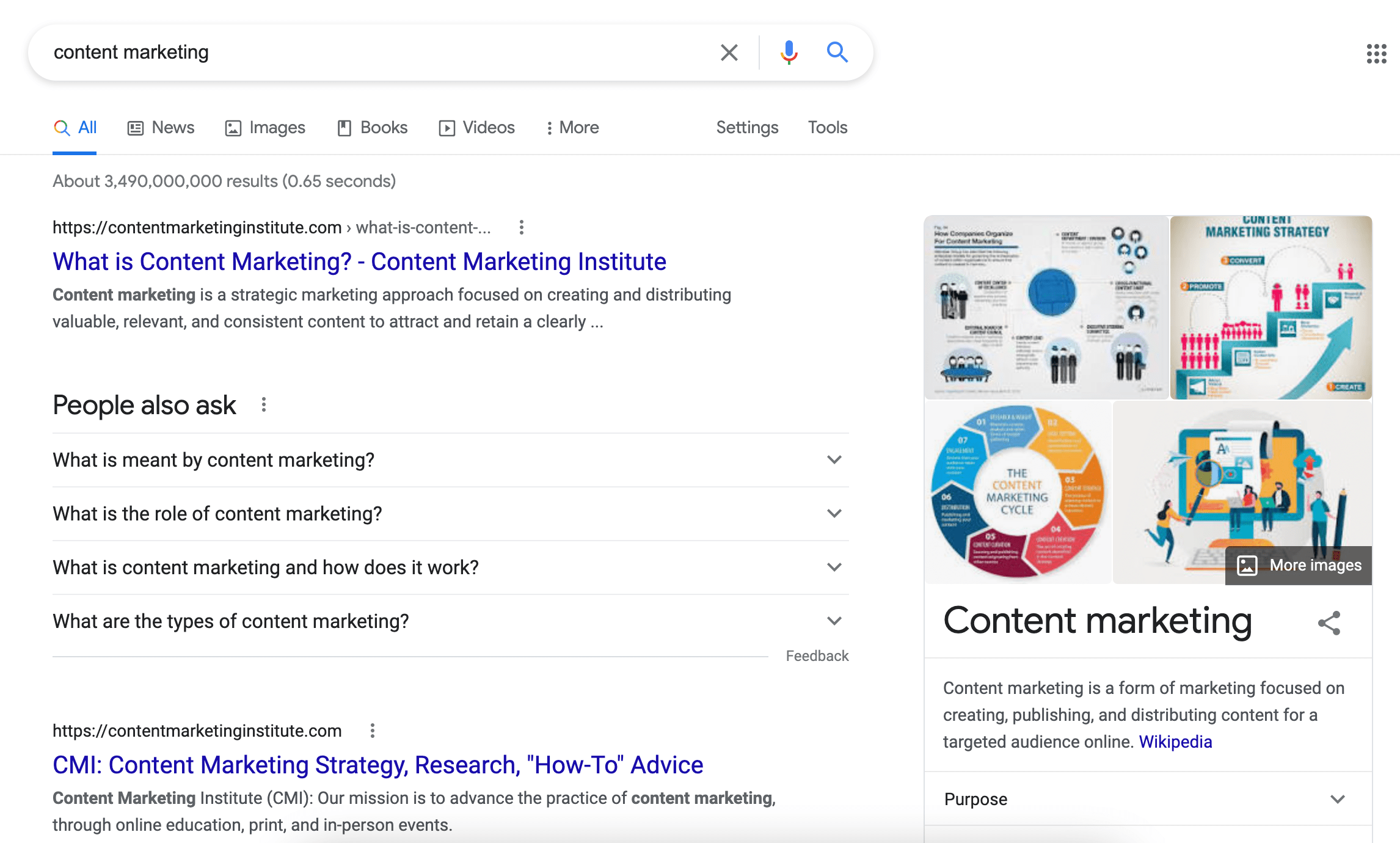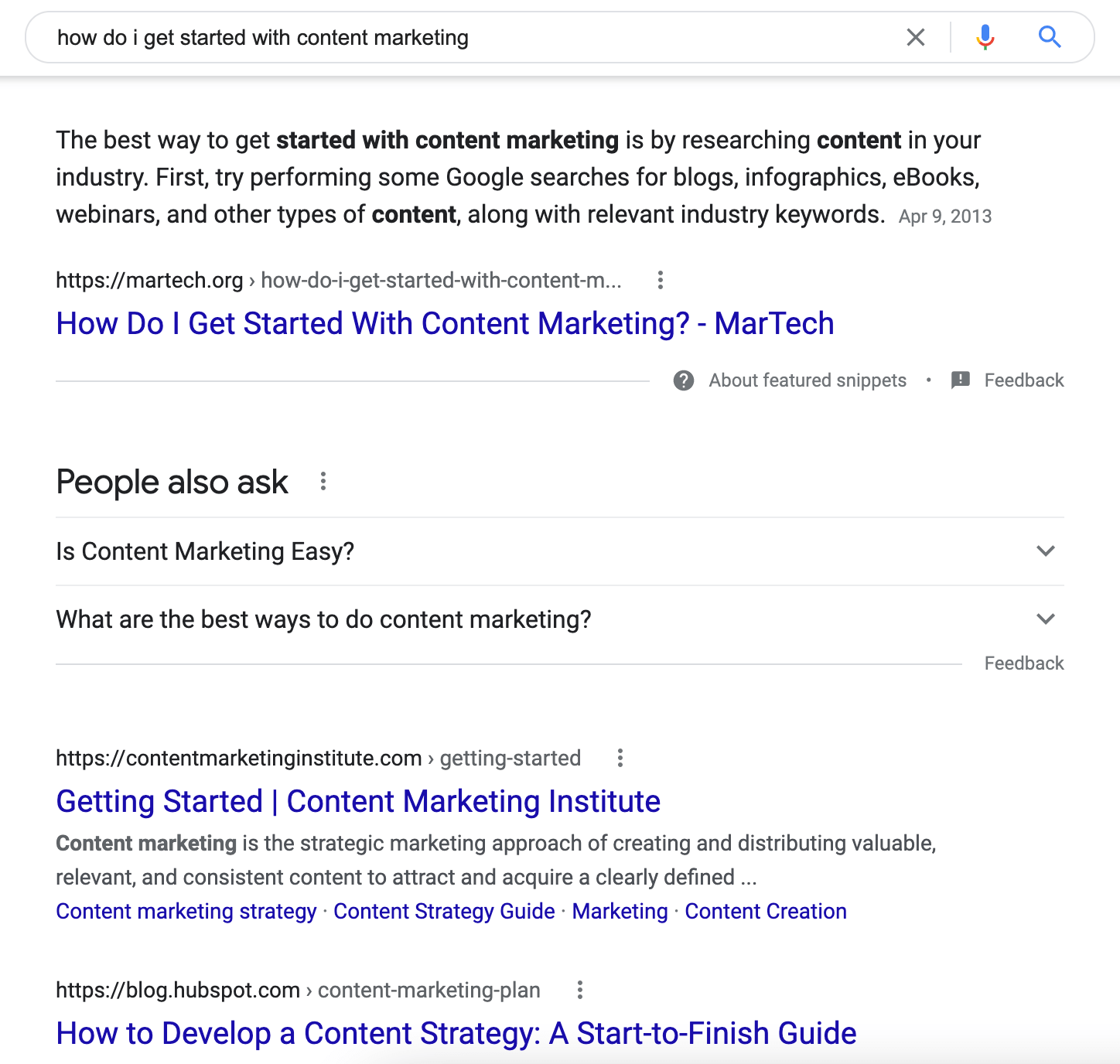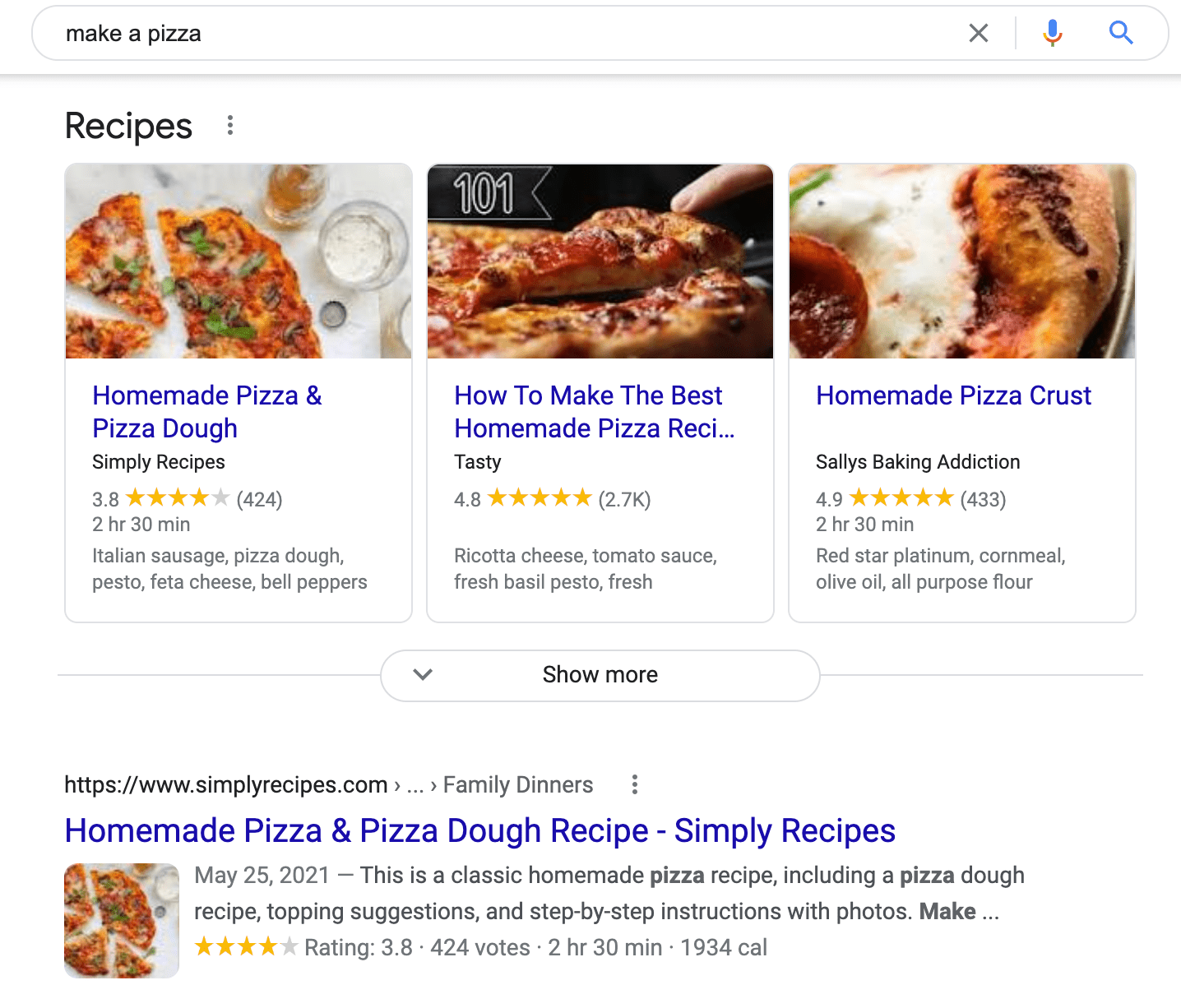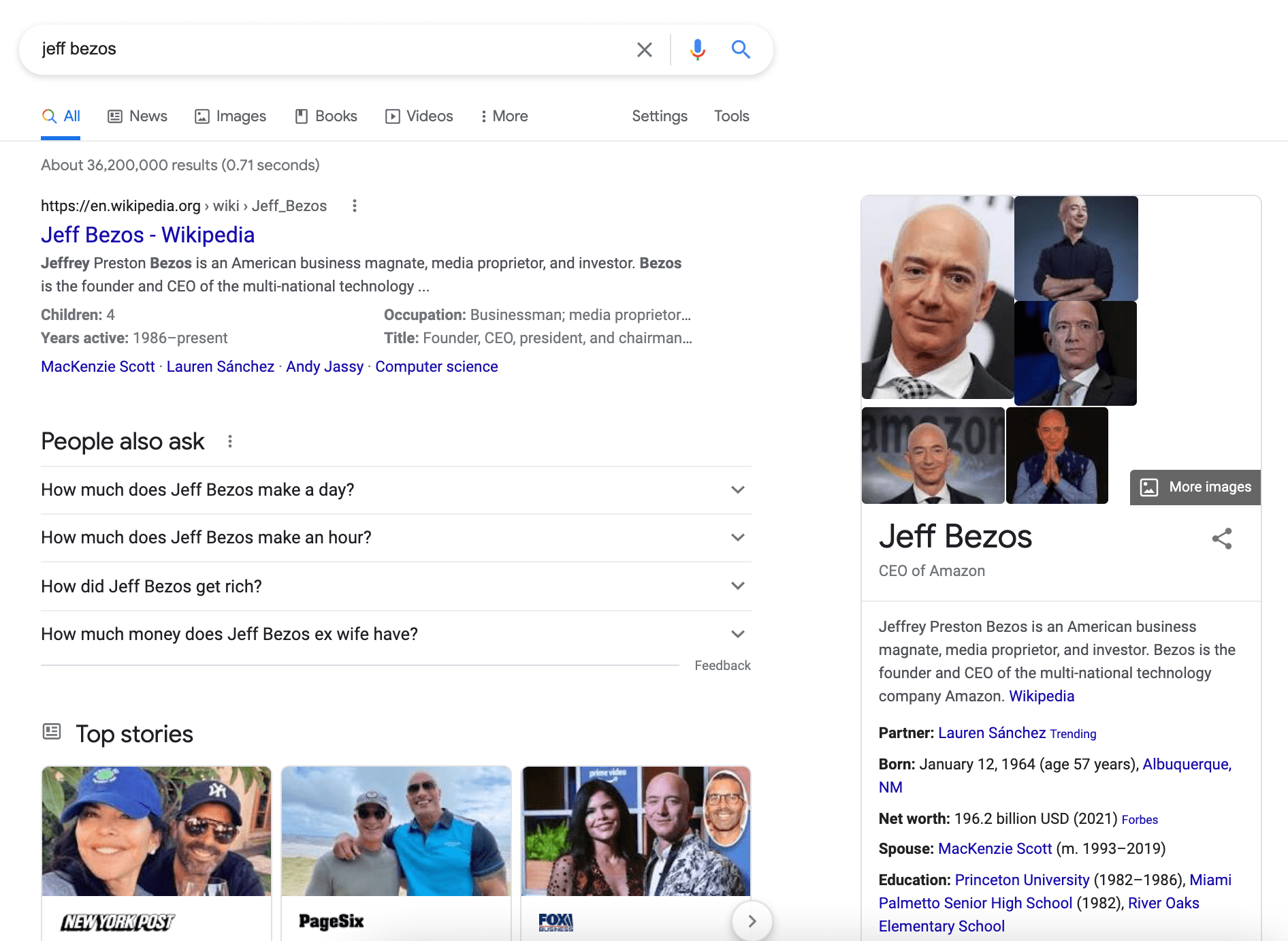Ten years ago, SEO strategists across the world followed a relatively similar process.
Step one, conduct keyword research. Step two, randomly write those keywords into the text on a page approximately five billion times. And step three — rank number one for that keyword.
I hate to break to you, but that isn't the case anymore.
Several algorithm updates like Hummingbird and RankBrain brought about a new concept: semantic search.
While this may remove jobs for black-hat keyword stuffers, SEOs who prioritize the importance of providing a good customer experience can sigh in relief that Google is now on their side.
Google and other search engines are continuously striving to satisfy the searcher with the most accurate results — which is precisely where semantic search comes in. In other words, it connects search intent with the context of your content to provide the most relevant and helpful results.
With these updates in place, how does this affect search traffic? And what do SEOs need to consider moving forward?
That's what I'll cover in this article.
What is semantic search?
To start, let's dive deeper into how semantic search works.
Semantic search is the process search engines use to try to understand the intent and contextual meaning of your search query in order to give you results that match what you had in mind.
In other words, semantic search aims to know why you are searching for these particular keywords, and what you intend to do with the information you get.
It's important to note — you don't want to mistake semantic search with Latent Semantic Indexing (LSI), or what some may call semantically-related keywords. LSIs can help provide context on what your content is about (which consequently helps with matching search intent), but semantic search is so much more than that.
If we're looking at semantic search holistically, here are the factors that guide how it works:
1. A user's search intent.
The term "search intent" refers to the reason why you are performing a query (or, in layman's terms: why you Google something). Most often you want to buy, find, or learn something.
For instance, if I search for "content marketing", Google provides results around the definition of content marketing, since the intent is fairly broad:

However, if I instead search "How do I get started with content marketing", Google does not provide definitions of content marketing, because my intent is different:

The takeaway: For all content marketers and SEOs, the big lesson here is that you need to heavily consider search intent when choosing keywords and creating content. Even if you have content that ranks well, if it doesn't match search intent, the user will leave the page — and that certainly doesn't help conversions.
2. The semantic meaning of search terms.
"Semantic search" was coined based on semantics, or the study of the meaning of words and phrases in certain contexts and the relationship between those words. When it comes to search, semantics refers to the connection between a search query, words related to it, and the content on website pages.
All of those factors combined help search engines understand what the search queries mean beyond a literal translation, so it can display results that are related to the context.
For example, if you search for "wedding dresses", the words related to that might include "wedding", "cake", "bride", and "dream". When the search is for "dresses", the related words might be "beautiful", "knee-length", and so on.
The takeaway: When choosing the keywords that go into your content, I recommend creating what's known as "keyword clusters", or groups of related keywords. These clusters directly relate to semantic search, because they ensure that your content covers a broader range of the topic. And with a broader range, comes multiple keyword rankings per page.
Other Factors Related to Semantic Search
Although the above two are the main factors, these factors also affect semantic search:
- Featured snippets: Featured snippets are based on providing the most direct and helpful answer to the searcher.
- Rich results: These affect semantic search as well through content such as images, and you'll see how in the example in the next section.
- Voice search: Voice search queries are usually very direct, include natural language, longer phrases, and question words that lends to how search engines process results.
- RankBrain: based on machine learning technology, the RankBrain algorithm helps Google understand the first-instance set that satisfies the query and related concepts, phrases, and synonyms.
- Hummingbird: the focus of the Hummingbird algorithm update was to provide better results for voice search, conversational language, and searches for specific people.
Semantic Search Examples
In order to give you a clear idea of how semantic search works, here are a few concrete examples.
Here, I searched "order a pizza", so the results are inclined towards local search:

Here, I Googled "Make a pizza", and I see rich results with recipes:

If I Google just "pizza", I will likely still get local search results, because more users are looking to order rather than make their own. However, if my search history is filled with pizza recipes, my results for "pizza" will likely also be recipes because of the personalization component.
Semantic search basically affects all results a user receives. So a website will only be served as a result for a certain keyword if the content on the page matches the context of that search query. Results for "make a pizza" will have ingredients, time to prepare, and so on, while "order a pizza" will have locations, delivery, and prices.
On an interesting note, current news affects search results, as well. Before the pandemic, a search for "corona" would have mostly returned the beer brand, but after the spread of COVID-19, you mainly get results regarding the virus.
Another example is Jeff Bezos. When you search for his name, you get a knowledge graph, general information, and below that, recent news. However, if something big has happened recently with Jeff Bezos, you'll see the Top Stories first.

How Google Uses Semantic Search
Google's bottom line is to give users the best search experience possible. To do that, they use semantic search to:
- Identify and disqualify low-quality content.
- Gain a better understanding of user search intent. For example: is the user searching to navigate to a particular page? Or are they searching to do more research about a topic?
- Formulate answers to questions.
- Determine what relevant data to pull from the Semantic Web
- Understand websites and pages in terms of topics instead of keywords.
- Integrate Google technologies where semantic search plays a role such as Knowledge Graph, Hummingbird, RankBrain, BERT.
- Appropriately format the data for inclusion in the search results.
- Connect with queries with all possible meaning when the search intent is not clear.
How to Use the Power of Semantic Search to Your Advantage
To put it simply, if your content doesn't have a semantic relationship with the search query, it won't show up in search results. The simple solution to this is matching your content to the search term in combination with the right strategy.
To be on the right side of SEO when it comes to semantic search, I recommend that you strive to do the following:
- Focus on topics, not keywords.
- Make sure you understand user search intent: is it to buy? to reach a particular page of a brand? To learn?
- Build relevancy through links (both internal and external).
- Use schema markup.
- Use semantic HTML like <header>, <footer> and <article>.
- Answer all relevant questions around your topic.
- Be answer-based and structure your sentences to be easily understandable.
Check these off your list, and you've got a one-stop shop to a powerful SEO strategy with the support of semantic search.
What Exactly Is Semantic Search (& How Does it Affect SEO) was originally posted by Local Sign Company Irvine, Ca. https://goo.gl/4NmUQV https://goo.gl/bQ1zHR http://www.pearltrees.com/anaheimsigns
![→ Download Now: SEO Starter Pack [Free Kit]](https://no-cache.hubspot.com/cta/default/53/1d7211ac-7b1b-4405-b940-54b8acedb26e.png)

No comments:
Post a Comment